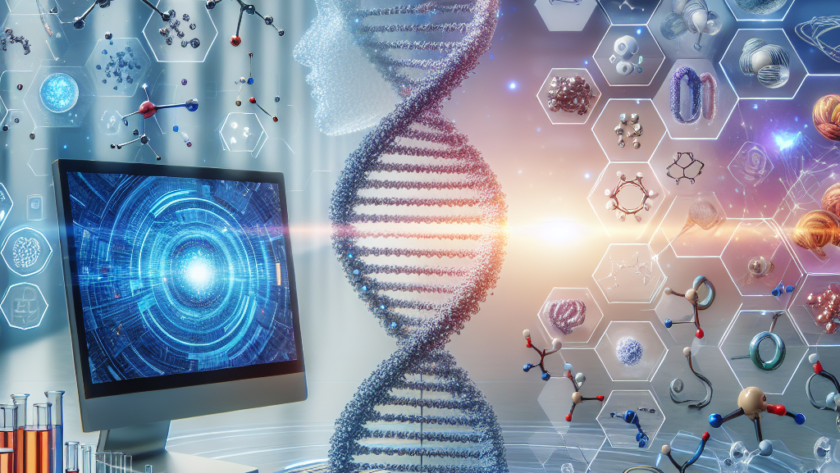Artificial Intelligence (AI) is revolutionizing a myriad of sectors, and the pharmaceutical industry is no exception. From identifying potential drug candidates to optimizing clinical trials, AI is significantly improving the efficiency and success rate of drug discovery. This article delves into the transformative impact of AI on drug discovery and development, exploring its benefits, challenges, and future prospects.
The Traditional Drug Discovery Process
Drug discovery is a challenging, time-consuming, and expensive process, traditionally taking 10-15 years and billions of dollars to bring a new drug to market. The process typically involves the following stages:
- Target Identification and Validation: Determining the biological target involved in a disease.
- Hit Identification: Screening vast chemical libraries to find potential candidates.
- Lead Optimization: Refining these candidates to improve efficacy and reduce toxicity.
- Preclinical Testing: Testing in vitro (in the lab) and in vivo (in animals) to assess safety and efficacy.
- Clinical Trials: Evaluating the drug’s effects in humans through multiple phases.
The Role of AI in Drug Discovery
AI is poised to transform each of these stages, offering unprecedented speed and accuracy. Here’s how AI is impacting the drug discovery process:
Target Identification and Validation
AI algorithms can analyze vast datasets from genomics, proteomics, and other sources to identify potential drug targets. Machine learning techniques help in predicting the interactions between drugs and their biological targets, enabling more accurate and rapid identification.
Hit Identification
Traditional hit identification involves laborious screening of chemical libraries. AI-driven models, using techniques like deep learning, can predict which molecules are most likely to bind with a target, drastically reducing the number of compounds that need to be tested.
Lead Optimization
AI facilitates the optimization of lead compounds by predicting and improving their efficacy, selectivity, and pharmacokinetics. Computational models can simulate how slight structural changes affect a compound’s performance, speeding up the optimization process.
Preclinical Testing
AI can significantly reduce the need for animal testing by accurately predicting a compound’s toxicity and side effects through in silico (computer-simulated) models. This not only saves time and resources but also raises ethical standards.
Clinical Trials
AI streamlines the clinical trial processes, from patient recruitment to data analysis. It can identify suitable candidates for trials, predict patient responses, and analyze vast amounts of clinical data in real-time, enhancing the efficiency of trials and increasing their success rates.
Benefits of AI in Drug Discovery
- Speed and Efficiency: AI accelerates various stages of drug discovery, reducing the overall time to market.
- Cost-effectiveness: By reducing laborious screening and testing, AI helps in cutting down the massive costs associated with drug development.
- Precision: AI improves the accuracy of predictions, leading to higher success rates in identifying viable drug candidates.
- Innovation: AI opens up new avenues for drug discovery, enabling the identification of novel targets and therapeutic pathways.
Challenges and Limitations
Despite its potential, integrating AI into drug discovery is not without challenges:
- Data Quality and Availability: AI models rely heavily on high-quality, comprehensive datasets. Incomplete or biased data can lead to inaccurate predictions.
- Complexity of Biological Systems: Biological systems are incredibly complex, and current AI models may struggle to account for all variables and interactions.
- Regulatory Hurdles: Regulatory frameworks need to evolve to accommodate the use of AI in drug discovery, which may slow down its adoption.
- Interdisciplinary Collaboration: Successful integration requires collaboration between AI experts, biologists, chemists, and other stakeholders, which can be challenging to coordinate.
Future Prospects
The future of AI in drug discovery looks promising as advancements in machine learning, big data, and computational biology continue to evolve. Collaborations between tech companies, pharmaceutical giants, and research institutions are paving the way for more integrated and efficient drug discovery pipelines. As AI technologies become more sophisticated, we can expect even greater innovations, ultimately transforming the landscape of pharmaceutical research and development.
Conclusion
AI is undoubtedly a game-changer in the realm of drug discovery, offering unprecedented speed, efficiency, and precision. While there are challenges to overcome, the potential benefits far outweigh the hurdles. As technology continues to advance, the integration of AI in drug discovery promises to revolutionize the pharmaceutical industry, paving the way for faster, safer, and more effective treatments.

